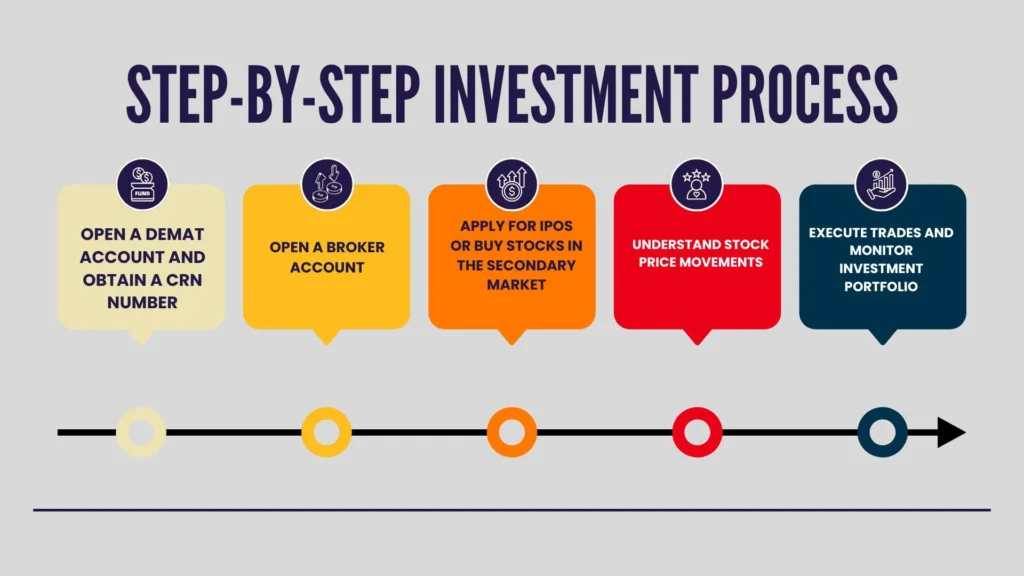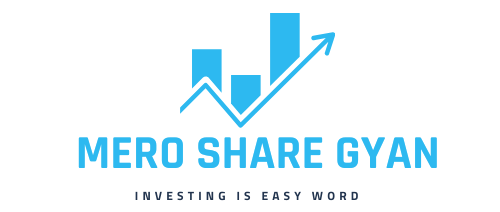New to investing? Discover How to Invest in the Nepal Stock Market with our easy-to-follow guide. Start your NEPSE investment journey today! Investing in the Nepal Stock Market can be a transformative journey toward financial growth.
With Nepal’s evolving economic landscape, the stock market presents significant investment opportunities for those willing to understand its mechanisms and trends. In this guide, we will walk you through everything you need to know about investing in the Nepalese stock market, from opening a broker account to making informed investment decisions.
Table of Contents
Understanding the Nepal Stock Market
What is NEPSE?
The Nepal Stock Exchange (NEPSE) is the only stock exchange in Nepal, facilitating the buying and selling of stocks in the country. It operates under the regulations of the Securities Board of Nepal (SEBON), ensuring fair and transparent trading practices.
Market Structure
The Nepalese stock market consists of two primary segments:
- Primary Market: Where new shares are issued via Initial Public Offerings (IPOs).
- Secondary Market: Where investors buy and sell shares that have already been issued.
Types of Securities Traded
- Equity Shares (Ordinary & Preference Shares)
- Government Bonds & Corporate Bonds
- Mutual Funds
Prerequisites for Investing
Legal and Financial Requirements
Before investing, you must ensure you meet the following requirements:
- Be at least 18 years old.
- Have a bank account in Nepal.
- Obtain a PAN number (Permanent Account Number) for tax identification.
Essential Financial Preparation
- Assess your financial health and define an investment budget.
- Understand risk management strategies.
- Ensure an emergency fund is in place before investing.
Step-by-Step Investment Process

1. Open a Demat Account and Obtain a CRN Number
A Demat account is essential for holding shares in electronic form. To open one:
- Choose a Depository Participant (DP) (banks or broker firms offering Demat services).
- Submit required documents (Citizenship, PAN, Passport-sized photo, and bank details).
- Obtain a CRN (C-ASBA Registration Number) from your bank, which is required for online applications.
2. Open a Broker Account
A broker account allows you to trade stocks on NEPSE. Steps to open a broker account:
- Select a licensed stockbroker from NEPSE’s list.
- Submit necessary documents (Citizenship, Demat account details, and bank account information).
- Activate Mero Share Account, an online portal for managing shares.
3. Apply for IPOs or Buy Stocks in the Secondary Market
You can invest in:
- Primary Market: Apply for IPOs through Mero Share.
- Secondary Market: Buy/sell stocks via your broker.
4. Understand Stock Price Movements
- Market trends: Track the stock market to understand fluctuations.
- Company Announcements: Follow company financial reports and news.
5. Execute Trades and Monitor Investment Portfolio
- Use online platforms like Mero Share for buying/selling.
Regularly review market news and adjust investments accordingly.
Investment Strategies
Types of Investments
- Single Stock: Investing in individual company shares.
- Mutual Funds: Diversified portfolio managed by professionals.
- Index Funds: Tracking NEPSE index performance.

Risk Management
- Diversification: Spread investments across sectors to minimize risk.
- Portfolio Management: Regularly review and rebalance investments.
Technical Analysis: Study stock charts and indicators for trends.
Practical Tips and Common Pitfalls
- Common Mistakes: Investing without research, emotional trading, and lack of diversification.
- Continuous Learning: Stay updated on market depth, current market price, and market condition.
- Reliable Sources: Follow financial news portals and government publications.
Tax Implications and Legal Considerations
- Capital Gains Tax: Short-term (5%) and long-term (2.5%) tax on profits.
- Regulations: Comply with SEBON’s guidelines.
- Investment in Development Banks: Consider regulated financial institutions for stable returns.
Monitoring and Growing Your Investment
- Use investment tracking tools for portfolio evaluation.
- Rebalance your portfolio periodically.
- Leverage technology like mobile trading apps for convenience.
Conclusion
Investing in the Nepal Stock Market requires knowledge, preparation, and strategic execution. By understanding NEPSE, opening necessary accounts, analyzing market trends, and managing risks, you can maximize your investment opportunities. Start small, stay informed, and grow your financial future!
Frequently Asked Questions (FAQs)
What is the Nepal Stock Exchange (NEPSE)?
NEPSE is the primary stock exchange in Nepal, where shares of publicly listed companies are bought and sold.
What are the basic requirements to start investing in NEPSE?
You’ll typically need a bank account, a Demat account, and a brokerage account.
How can I invest 100 Rs in the share market?
While possible with some brokers, transaction costs might make very small trades less efficient. Consider saving to invest a larger amount for better returns.

